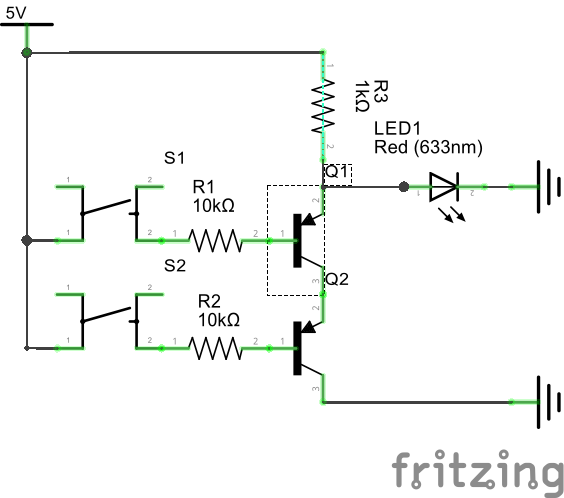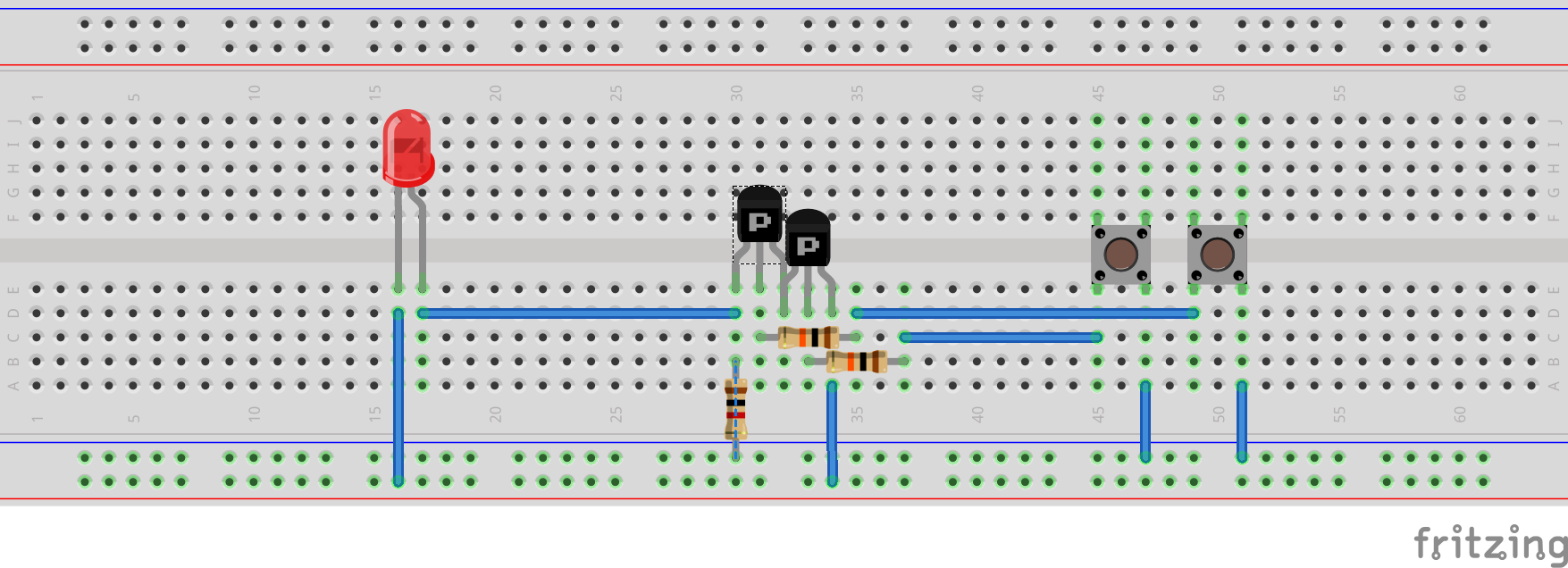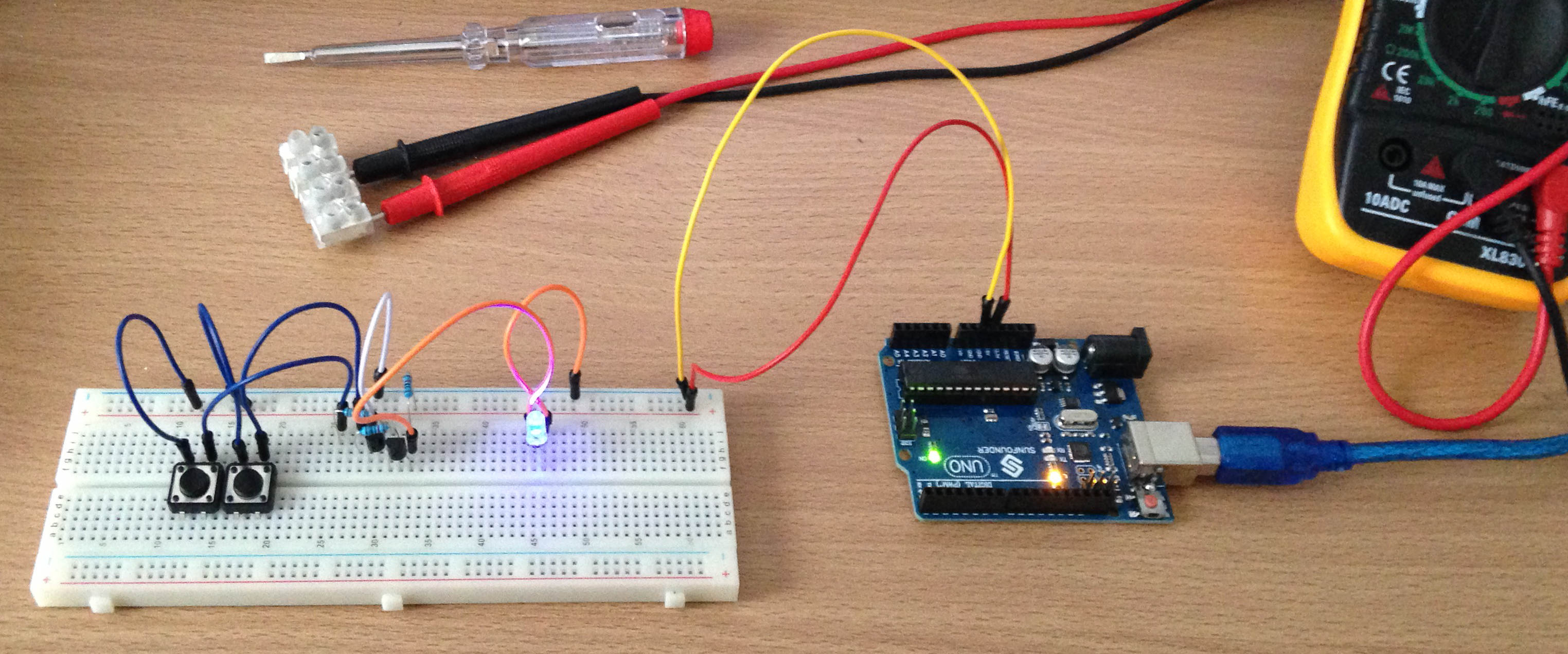A computer from scratch - Eating at NANDos
July 20, 2015 by Marco Cecconi
July 20, 2015 by Marco Cecconi
I am attempting to build a computer from prime principles. Am I crazy? Probably. But I have a plan.

Let's start from the beginning
Because not knowing how stuff works bugs me to no end. It's not enough for me to use a programming language. In the past I dabbled and spent more than a little time playing with lower level stuff like assembly. I also spent considerable time thinking architecturally about systems -- in fact I have been a senior software architect (whatever that means, lol). This is to say: I try not to be monodimensional and I like to approach systems from different angles, I like taking a look from orbit and zooming in with a microscope -- and all the views in between.
My knowledge has gaps when going from the transistor to the computer. I know the parts and how to assemble a computer, but not how, for example, to build a CPU or memory chip. I want to find out! I have come across two things that tipped me over the edge and got me started
The reason why I want to build a computer is that doing something in practice is way more interesting that studying how it should be done.
I am not deranged enough (yet...) to literally build a computer transistor by transistor. Would you spend years soldering together memory banks bit by bit? It makes no sense. What I plan to do is cheat by removing the tedious parts and leaving the fun ones. I will do so by "scaling". If I built something, say, an adder, I'll let myself buy premade adders like a TI-7483. So as long as what I'm avoiding to do is a repetition of what I've done, I'm fine.
I am not sure if this makes all the step necessary feasible, if not, I'll cheat more, because YOLO. I will take basic electrical components for granted, too -- I know how transistors, resistors, caps, LEDs, etc. work from my physics labs days.
In detail, here's what the current journey plan looks like:
I don't know if I'll be able to go to all the way to point 8. Stuff gets harder as we go down the list. On top of that, there are BIOSes, OSes, compilers, etc. Also there's a factor of costs involved to consider. We shall see.
NAND gates are interesting because they are easy to build and you can use them to build every other kind of gate. I think it's a good starting point to build a computer!
I've taken the circuit from hyperphysics and modified it to suit my needs. Here's what I came up with:

Which should look like this once on the breadboard:

I expect the led to be ON if no buttons are pressed, or if only one button is pressed, and OFF is both buttons are pressed.
I am using a Sunfounder Arduino UNO clone to power this circuit. All schematics made with fritzing.
Success! The circuit behaves as expected. It even ran on the first attempt! Here's a pic of the running circuit, attached to my Arduino as power source.

For someone as fat fingered as I am, with no experience in electronics, this was a lot of fun! I can't wait to take the next step!
I am the Chief R&D at BaxEnergy, developer, hacker, blogger, conference lecturer. Bio: ex Stack Overflow core, ex Toptal core.
Read moreDecember 27, 2024 by Marco Cecconi
TDD can’t guarantee zero-defects. Let us debunk this software development myth.
Read moreMarch 12, 2023 by Marco Cecconi
Stack Overflow could benefit from adopting a using conversational AI to provide specific answers
Read moreOctober 15, 2021 by Marco Cecconi
Multiple people with my name use my email address and I can read their email, chaos ensues!
Read moreSeptember 29, 2021 by Marco Cecconi
After years of building, our top-notch consultancy to help start-ups and scale-ups create great, scalable products, I think it is high time I added an update to how it is going and what's next for us.
Read moreFebruary 03, 2021 by Marco Cecconi
A lesson in building communities by Stack Overflow's most prominent community manager emeritus, Shog9
Read moreWhat began, in Boole’s words, with an investigation “concerning the nature and constitution of the human mind,” could result in the creation of new minds—artificial minds—that might someday match or even exceed our own.
Read more…